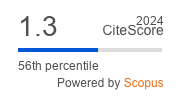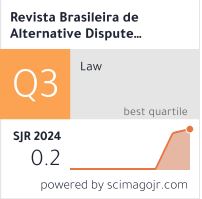Affection in methods of dispute resolution
Keywords:
Affection, Decision-Making, Suitability, Methods of Dispute ResolutionAbstract
The article discusses affection in its philosophical aspect, proposing a rational reflection on the individual perceptions of each party involved in a conflict, in order to analyze how this affection influences the methods of dispute resolution. It assesses the changes in world view from the perspective of Thomas S. Kuhn, in which the visions and world views change according to the society that inhabits the world at that time, with the world being understood as the material universe that has always been the same. It goes on to consider how beliefs and imaginative capacity were instrumental in the formation of human society and how emotions influence decision-making. In considering decision-making as a more emotional rather than rational process, the article goes on to address the relationship between affection and methods of dispute resolution, alluding to the identification regimes proposed by Vladimir Safatle and fear as political affection, which is capable of causing paranoid as well as violence and risk-averse social behaviors, in order to correlate this whole context with the importance of suitability of the conflict to the environment/method of dispute resolution for the efficiency of the negotiations.
Downloads
Published
Issue
Section
License
No royalties or other compensation shall be due for the publication of the works.
The opinions expressed by the authors of the articles and reviews are their sole responsibility.









